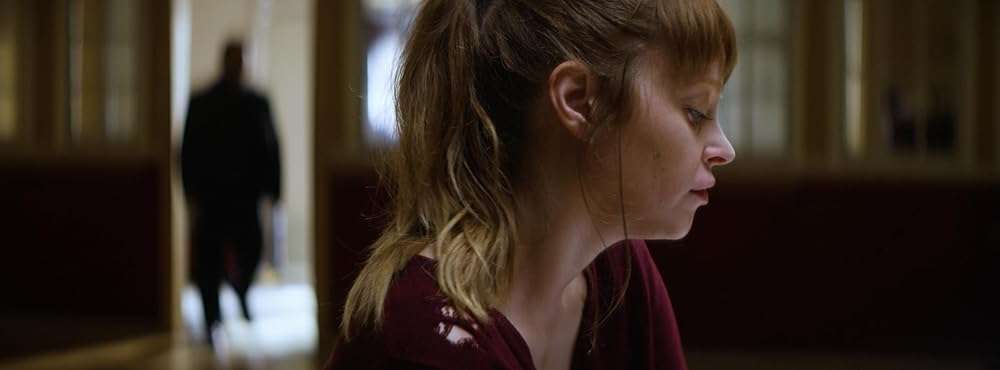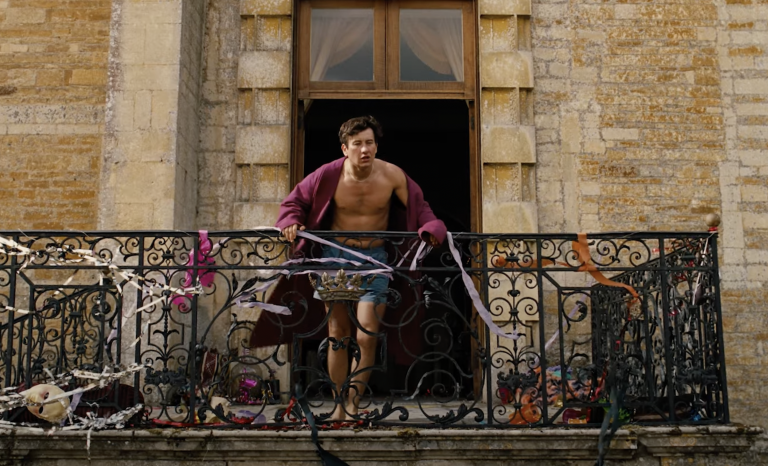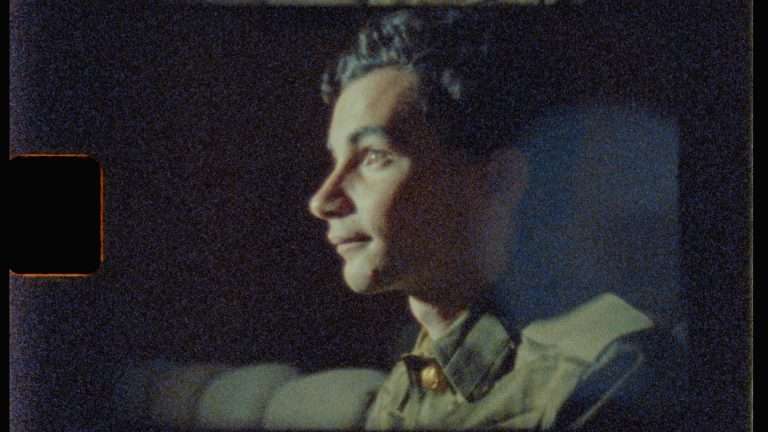Partially funded through a 2022 Indiegogo campaign, The Woman Under The Stage (2023) is an independent horror feature directed by Ezekiel Decker and written by Decker and Logan Rinaldi. After watching the film, I looked through the “Trivia” section of the film’s IMDb page, which featured the following bit of information: “Roughly 1/3 of the film’s budget was raised through a crowdfund, with 10% of the donations coming from horror writer and director Mike Flanagan.” I tried looking this factoid up but could not find any corroborating evidence to support it.
Regardless of whether it is true or not, The Woman Under The Stage reminded this writer of Flanagan’s early work. It is driven primarily by characters whose inner demons and traumas manifest in supernatural happenings. Said happenings aren’t very scary, and the script lacks Flanagan’s emotional clarity. Still, the overall effect is appreciable, thanks to the mostly capable performances and the fascinating mystery at the heart of all the horror. This film has a lot going for it, though its screenplay holds it back from achieving the kind of impact that its modern horror counterparts have been able to make.
The film starts on a sobering note: the opening credits are interspersed with shots of a man (Jonathan Lamar Egbuna) delivering a monologue from Macbeth as he painfully finishes writing something on his typewriter. A stem glass lies before him, which he occasionally drinks from. Blood splatters the page as the scene ends, and an even more intense sequence follows: aspiring actress Whitney Bennett (Jessica Dawn Willis) attempts to take her life. As her boyfriend Josh (Robert Gemaehlich) tries to reach her, Decker and editor Marc Rouse cut intermittently to Whitney performing another soliloquy from Macbeth, which ends as Josh breaks open the door with the words, “The bell invites me.”
The film then cuts to an indeterminate period of time later when Whitney learns she’s gotten one of the lead roles in a play meant to be performed by three actors. The director, Terrence Durrand (an intense Matthew Tompkins), warns her that the production will not be easy–the play was written by a playwright named Hewlett J. Grant, who killed himself after finishing it.
His estate has demanded utmost secrecy–the work will be produced only once, and the script will be burned afterward. The cast and crew will live at the venue for three months to prepare for it. Intrigued and grateful for the opportunity, Whitney agrees to the cult-like atmosphere of the production, which includes her fellow actors: Jesse (Ashley Spicer) and Phillip (Phil Harrison). Naturally, things go awry from there.
To specify exactly how they go awry would constitute spoiling the film, but suffice it to say that Whitney has encounters with various supernatural entities and also comes across a few familiar faces where you wouldn’t expect to see them (a late-act twist is spoiled somewhat because Decker has certain actors playing dual-roles).
The scares aren’t particularly noteworthy, relying on cheap jump scares and the tired “character walks down a dark hallway” setup far too much. The filmmakers cannot create the kind of atmosphere that would inspire actual fright, primarily due to the soundscape of the film during the horror scenes feeling sparse and uninspired.

Unfortunately, the lack of atmosphere extends to the total tension in the piece–there just isn’t much of it. There is no sense of the characters being in danger, even as they scream and sob out of fear for their lives. That’s partly because the filmmakers invest no time in building out the myth of their scary monsters, and the sequences aren’t well-directed enough to build tension out of glances and whispers in the dark. Characters easily escape their predicaments, and even when caught, they don’t seem to be affected all that much by the dangers around them.
The actors do their best with their performances, allowing some element of their characters’ trauma to break through to the audience. Specifically with Whitney, it feels as if the characters pose more of a danger to themselves than any supernatural beings around them could. That’s a testament to the strength of the performances, which Decker does a great job of pulling out. The cast is actually the true highlight of the picture and the deserved plot’s focus. Jessica Dawn Willis, in particular, is terrific as Whitney, allowing the audience to feel her character’s trauma deeply.
Matthew Tompkins is also excellent as the director of the play, and he features prominently in the film’s best scenes: the rehearsals. It is incredible to see Willis as Whitney, playing a character in Scorned Roses (the play within the film), modulating her performance in response to the directions she’s given. Acting has always struck this writer as a fantastic magic trick, a spectacular feat of emotional dexterity, and Decker and Rinaldi appear to be of the same opinion. Their film is, more than anything, an ode to the sacrifice that performance artists make in order to yield sincere performances for whatever project they’ve devoted themselves to.
Which brings us to the point of The Woman Under The Stage. While many art appreciators think of it as a therapeutic endeavor, a way for artists to exorcize emotional demons, this film offers a different point of view. While working with the production, Whitney only sinks further into her despair–instead of helping her overcome her depression, the work acts like an anchor. The filmmakers use the symbol of a stem glass to represent her internal turmoil, which follows her around just as it (apparently) follows the writer of Scorned Roses.
The appearance of actors in dual roles adds to this, showcasing how artists are, underneath their exteriors, tapping into the same hotbed of trauma for their work. It’s a dramatic view of the medium of performance, and why shouldn’t it be? To make art is to bare the soul.



![The African Desperate [2022] Review: A mostly funny satire that delivers occasionally but ultimately fails to leave a mark](https://79468c92.delivery.rocketcdn.me/wp-content/uploads/2022/10/The-African-Desperate-2022-Movie-Review-768x432.jpg)


